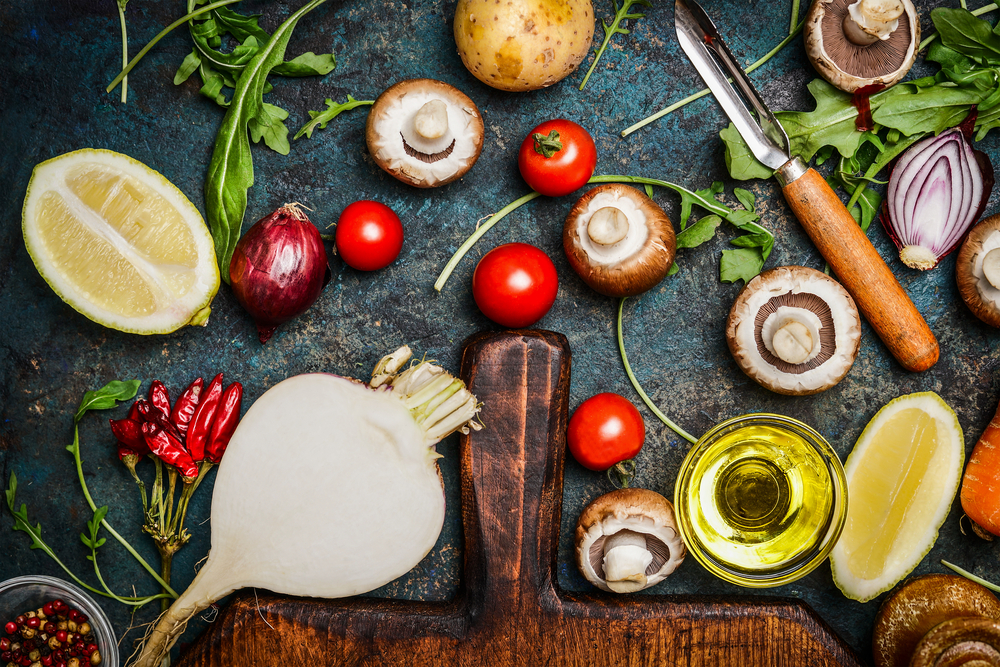
06 Feb Your Body’s Response to Switching to Veganism
For many people, the vegan lifestyle is a moral and ethical choice. However, it is also being viewed as a means in achieving certain health benefits. Either way, having a good grasp of how your body responds to a diet without any animal by-products is vital. By all means enjoy the advantages, but it’s important to counterbalance your change in diet by finding those products that ensure that you are still getting your daily dose of what your body needs.
Initial tiredness
There’s a good chance you’re going to experience some initial fatigue as your body adjusts to the absence of meat. You may also find that you get headaches and feel dizzy. This could continue if your body does not get alternative sources of some key nutrients, namely iron and Vitamin B12.
The solution is actually really straightforward. Ensure that from day one, you include fortified or nutritionally rich foods in your diet. Bran or nutty foods and snacks can plug the gaps left by meat. If ever there was a non-moral reason for choosing a vegan diet it would be to loose weight. It’s logical, as your body is not being asked to deal with the same amount of fat and protein received from meat and dairy. However, the trick is to not let this go too far. Your body will struggle to repair itself without quality protein. Digestion of key nutrients can be inhibited by a lack of essential fats in your diet. This is why plant-based superfood protein shakes and meals are so important. The fats and proteins that can be found in nuts are also valuable, such as having different types of nut butters.
General health from certain nutrients
Many vegan food ingredients and vegan recipes provide an abundance of some nutrients that other diet choices tend to neglect. The absence of meat leads to a greater consumption of wholegrains, beans, peas, nuts and seeds. You are also likely to experiment with a wider range of fruit and vegetables. Mainstream consumption of food often requires people to specifically focus on their five (or more accurately seven) portions of fruit and veg a day. That’s a natural and automatic feature of a vegan lifestyle.
Your body responds to and is able to process and use additional fibre, antioxidants and beneficial plant compounds that you eat daily. This also increasing your intake of other sources of potassium and Vitamins A, C and E.
Your kidneys may work better
One part of your body which may begin to function better is your kidneys. There is evidence to suggest the balance of nutrients consumed in vegan diets may reduce kidney function decline and can protect you against Type 2 Diabetes. This is because your body benefits from reduced blood sugar levels.
Your body will produce more waste
A vegan diet is highly likely to mean more visits to the toilet. Your body will be dealing with far more fibre-rich food, which is highly beneficial to healthy digestion.
Your heart will thank you
There are ample studies to show that a vegan or vegetarian diet can make your heart healthier and stronger too. Vegan protein sources are believed to be good at reducing the risk of cardiovascular disease, and generally lowering cholesterol and therefore blood pressure.
Imbalances
That’s not to say all of these physical benefits are automatic. You also need to keep in mind that some of the less positive reactions may take time to appear, as it settles into your move away from meat and dairy.
The key to counterbalancing this is a conscious effort to include foods from a variety of categories and nutritional groups. For example, with a vegan diet, you could fall into the trap of ingesting too little of nutrients commonly found in meat and dairy products, such as essential fatty acids, Vitamin B12, magnesium, zinc and calcium.
This often arises from opting for fast-food type vegan options, rather than concentrating on well-balanced specialist foods and whole plants.
Luckily the world of veganism is being incredibly well catered for with meat-free produce. If you’re looking to ensure that you’re getting all those Omega’s, Vitamins and so forth consider using the range of vegan supplements too.



Pingback:Climate Change is Real: 7 Simple Ways to Reduce Your Carbon Footprint - Faithful to Nature Natural and Organic Blog
Posted at 13:46h, 16 November[…] seems to have caught on over the past few years, as more and more people are opting for a vegan/vegetarian […]